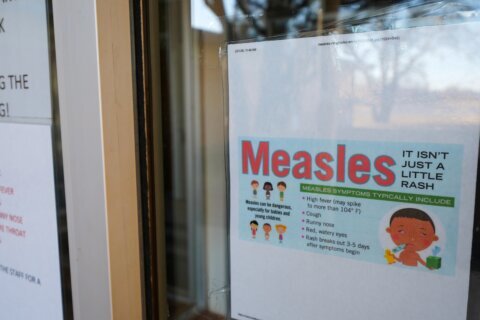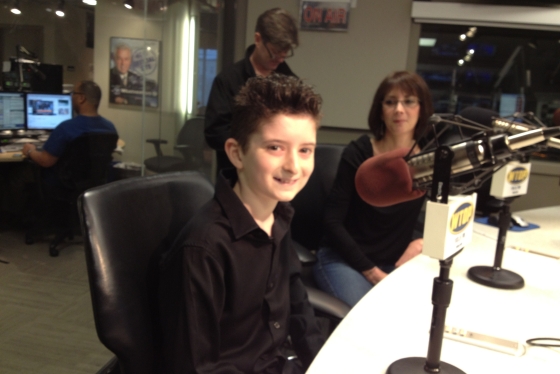A Montgomery County, Maryland, teenager, who as a 12-year-old in 2013 stole the show when Green Day frontman Billie Joe Armstrong invited him on stage to sing at the Patriot Center — now called EagleBank Arena — has written a song of hope amid the COVID-19 outbreak.
Davis Gestiehr, now 19, is a songwriting major at Belmont University in Nashville, Tennessee.
“I think everyone just needed the reminder that this is an impermanent time and that we are going to get through this,” Davis Gestiehr, who hopes that his song inspires that, said.
The song’s title, “Eschaton,” means the final event in a divine plan. And the lyrics reflect the once-crowded places that are now empty.
The remnants of this ghost town,
The nearly traveled roads
Echo through the trailing wind to the place we used to roam
“Although it might feel like you are alone, we are all alone together; and we are all going to get through it,” he said.
Davis Gestiehr was inspired to write the song, in part, to comfort his sister Madison Gestiehr, 21, who’s a senior studying government and politics at the University of Maryland.
“We both got home for spring break, then all of our classes were canceled, sadly. So we’re riding out the rest of the semester with online classes from home,” Davis Gestiehr said.

Madison Gestiehr has enough credits to graduate, but it is unclear whether there will be a commencement ceremony.
“That’s kind of very upsetting as a senior and disappointing, but I’ve gotten through it,” she said. “Davis has helped me, and through this song he’s saying, ‘You’re not alone; you’re not the only senior who feels this way.'”
When they were younger, the siblings performed together as “Davison Duo.”
“Everyone’s feeling an extreme amount of loss. We need to find a little bit of comfort and stay positive within those losses,” Madison Gestiehr said.
She hopes everyone who does hear this song is comforted and reassured.
“We’re going to get through this, and you’re not alone,” she said.
A professor of communication at The Ohio State University believes music can help with stress.
“Listening to music positively affects cortisol levels in the saliva, and it can lower a person’s heart rate,” Silvia Knobloch-Westerwick wrote in the school new release.
“Music is a very effective, easy and cheap way of distracting yourself,” Knobloch-Westerwick said.
Knobloch-Westerwick said that listening to music might remind you of other people and help you feel connected.
“And that is a buffer against stress — human connectedness helps you to feel less stress.”
- Sign up for news alerts from WTOP
- Stay-at-home orders got you down? Check out these online challenges
- Bryan Voltaggio talks ‘Top Chef,’ running restaurants amid coronavrius closures
- Coronavirus FAQ: What you need to know









